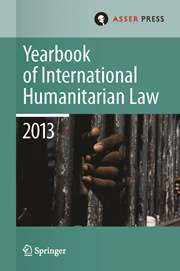Article contents
THE USE OF WHITE PHOSPHORUS AND THE LAW OF WAR
Published online by Cambridge University Press: 03 February 2009
Abstract
The controversy surrounding recent uses of white phosphorus (WP) to ‘flush-out’ suspected insurgents or in attacks against military targets in open ground has led to a renewed media interest in the legal status of WP-based munitions. An inherent public dislike for weapons that cause death or injury by fire is very natural, so one is entitled to ask whether humanity should not prevail when it comes to anti-personnel uses of such weapons. In the absence of a specific treaty dealing with the use of WP, this article, written jointly by a retired military lawyer and a scientist interested in the law, examines the use of such weapons in practice as well as the relevant legal and scientific background before attempting to reach conclusions about their legality. This involves a consideration of the reasons for the development of WP-based munitions, of their usual military uses and of some unconventional uses of such weapons. There follows an examination of the basic principles of customary international law as well as the treaty provisions dealing with incendiary weapons. Furthermore, because of the various harmful physiological interactions of WP, it was necessary to look closely at the legal provisions on poison, gas and chemical weapons. That demanded an interpretation of multiple aspects of the Chemical Weapons Convention before the legal status of WP could be fully determined. The convention is constructed in such a way that what at first sight appears to be a chemical weapon may not be as a matter of law unless it is consciously applied in a prohibited manner.
Keywords
- Type
- Articles
- Information
- Copyright
- Copyright © T.M.C. Asser Instituut and the Authors 2007
- 1
- Cited by




